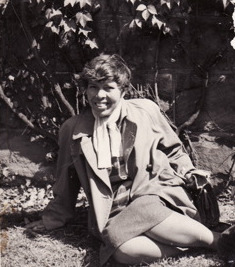Introduction
The Gouzenko Affair marks what many historians view as the beginning of the Cold War. Following the defection of Igor Gouzenko from the Soviet Union in 1945 and his exposure of classified documents describing Soviet espionage activity, allegations of a Soviet communist spy ring in Canada sprung to the forefront of the nation’s mind. A royal commission was formed to investigate, arrests were made, and the event set off what many view as the beginning of the Cold War in Canada, reflecting a larger fear of treason surrounding the war effort, Canadian citizens’ rights whilst under investigation, and the Canadian government’s seemingly poor handling of the affair as a whole (1).
Key issues explored within these columns include criticism of the Canadian Department of Justice’s misconduct regarding persecution of Canadian citizens. Robinson names Minister of Justice Louis St. Laurent several times as one of many member of government who prefers the practice of ignoring the Bill of Rights and habeas corpus in order to more neatly arrange trials under secret orders in council. Naturally, criticism of Prime Minister King follows, as his comments supporting the act of ‘quietly’ dealing with these matters are heavily criticized. Robinson consistently finds it unacceptable that any suspect of any act should ever be examined secretly and “found guilty” by any commission before an open trial in court.
Judith Robinson, through her regular column in newspaper NEWS titled "This Space", wrote a number of pieces from February to April 1946 on the topic of the Gouzenko affair and its subsequent (mis)handling by the Canadian government. A closer examination of these columns will lead to further examination into how Judith Robinson used her editorials to advance her political critiques of the Canadian government’s handling of the Gouzenko affair, subsequent treason accusations, and the risk of damaging Canada’s future security through the actions of its leaders.


